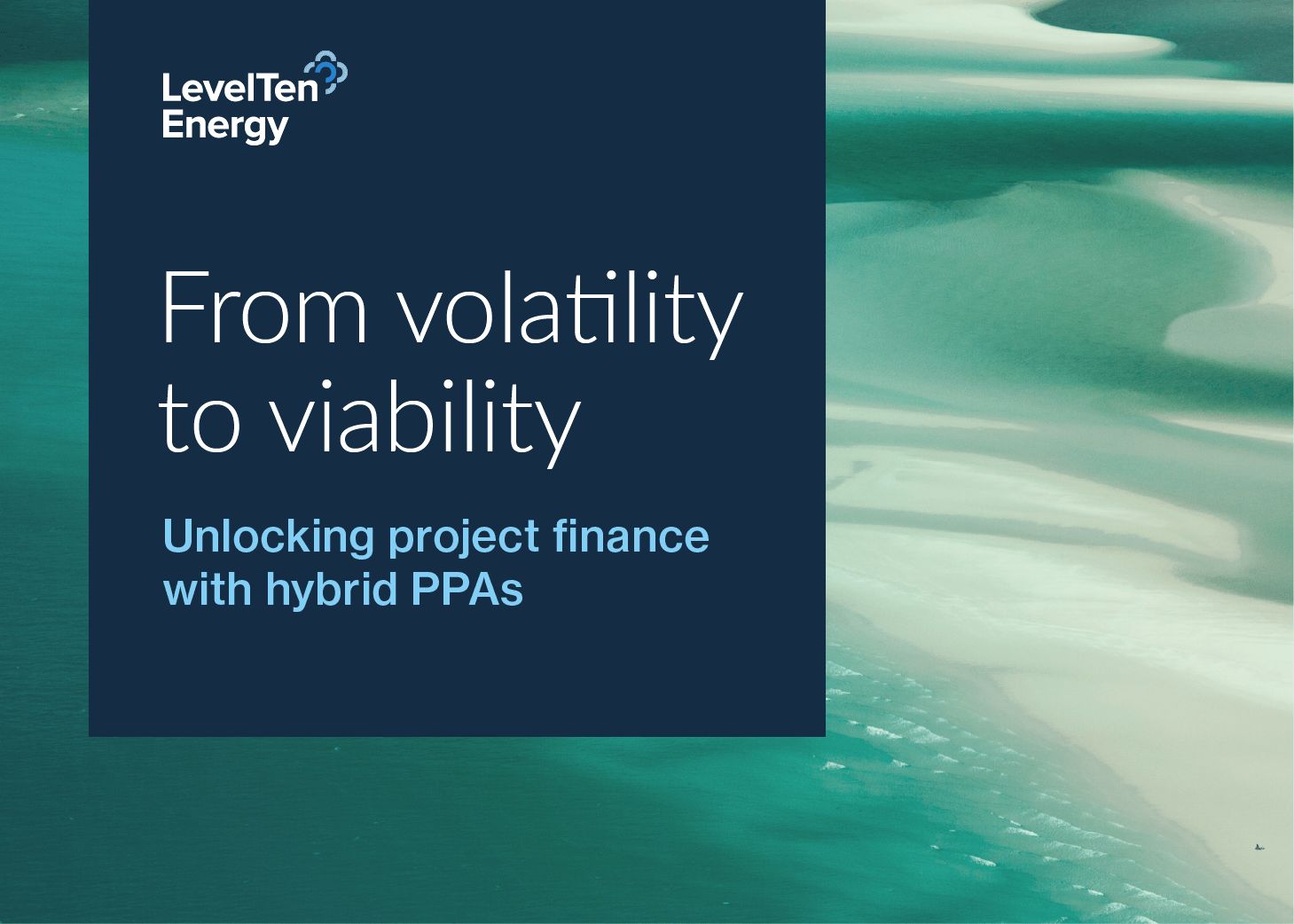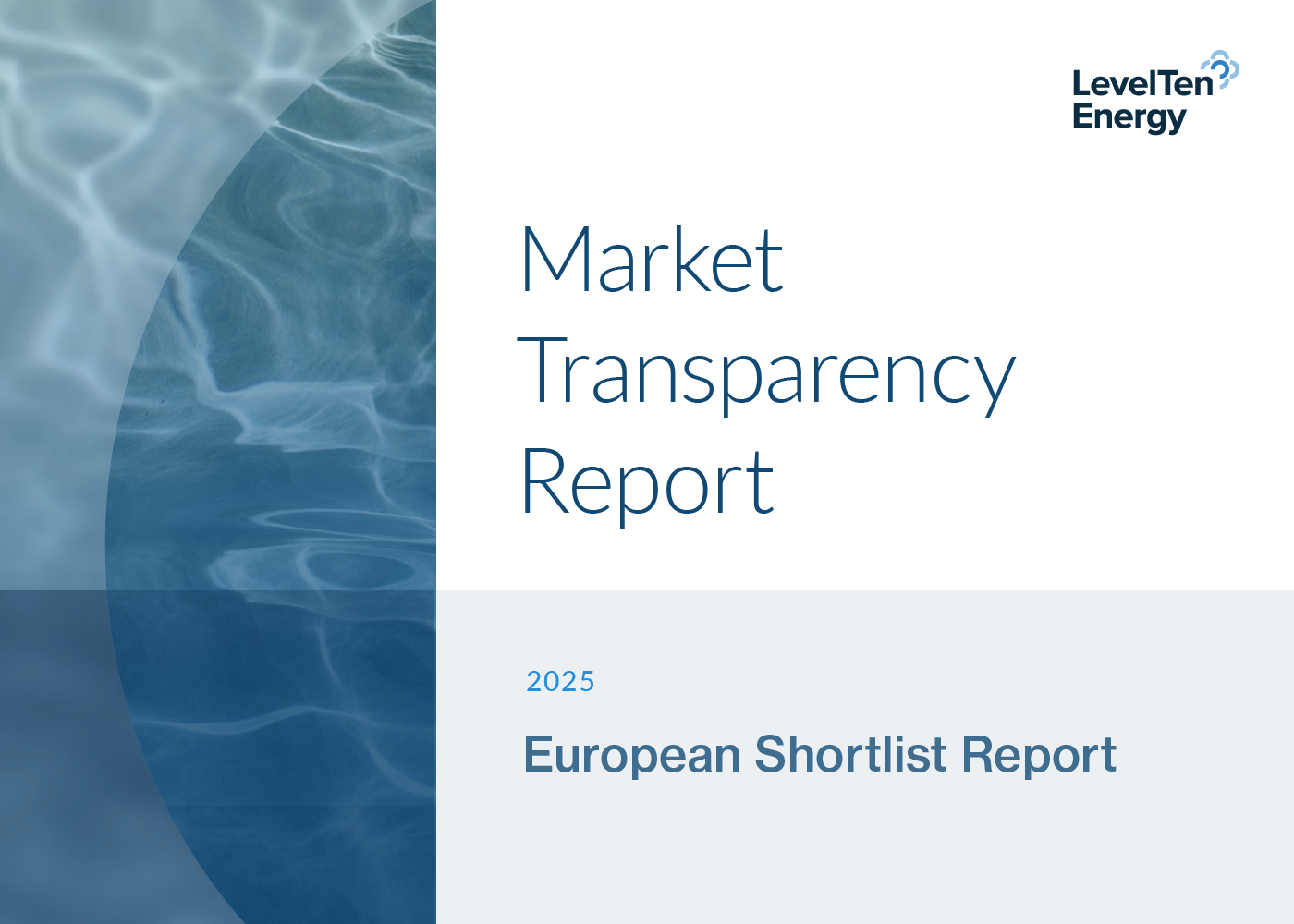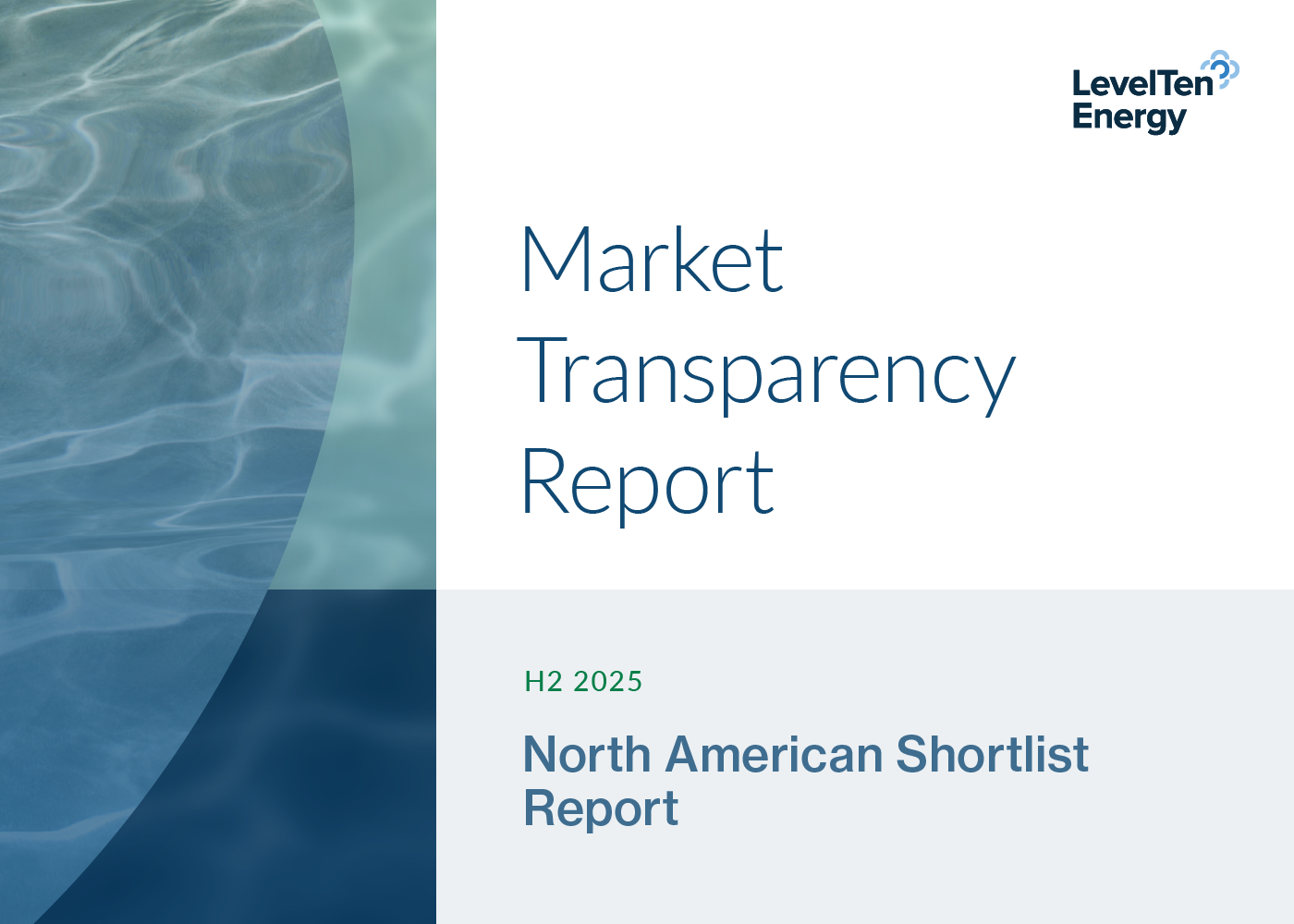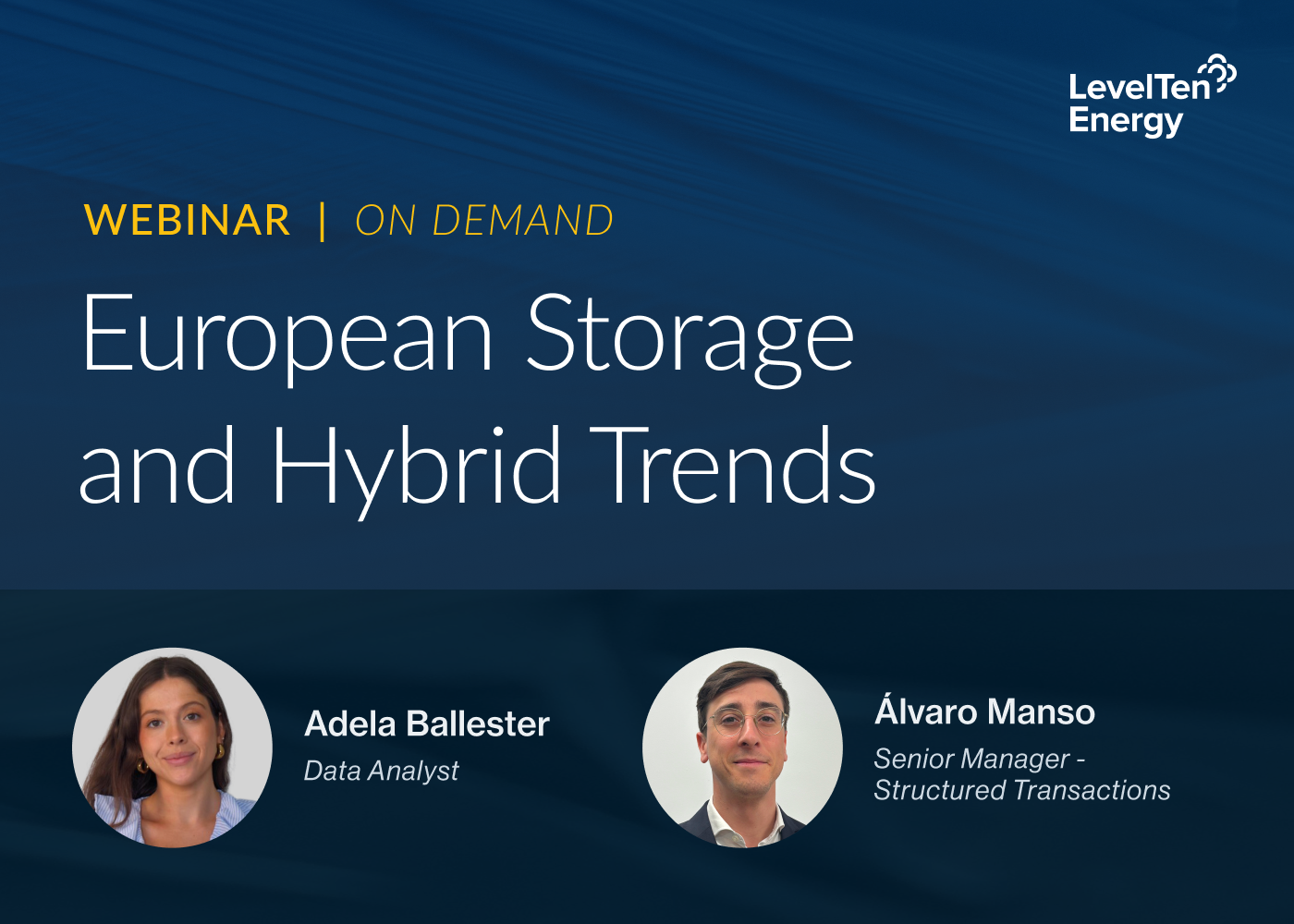The role of the power purchase agreement (PPA) is becoming more critical than ever, with hybrid deals emerging as the go-to model — and for good reason.
At last week’s UNEF Foro Solar event in Madrid, I joined a panel of project finance experts, lenders, and optimisers to discuss the future of project financing for renewable energy projects, and the instruments market players are using to mitigate today’s challenges.
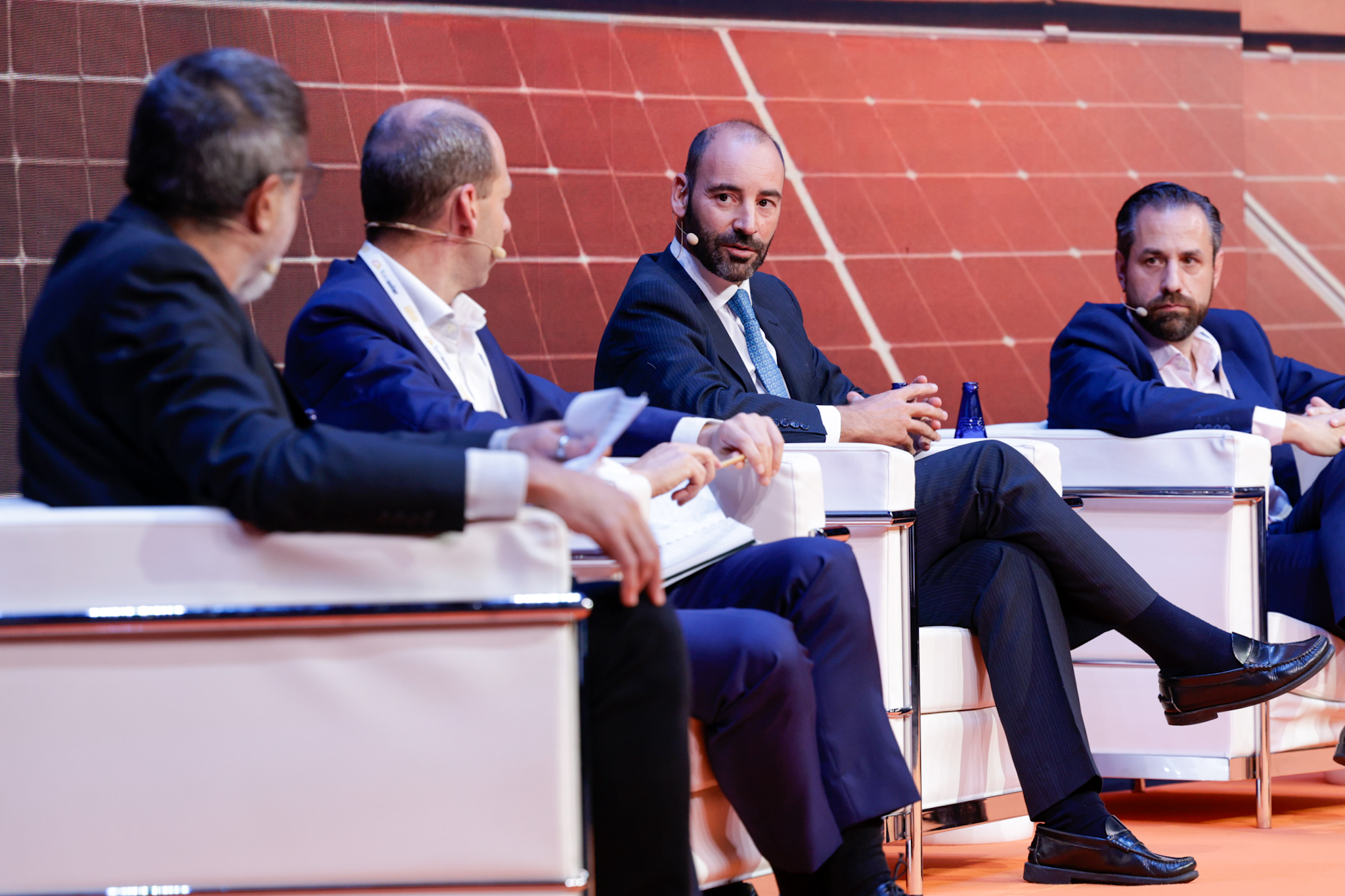
The discussion made clear that two things are certain in this volatile world: more energy will be needed, and the vast majority of it will be renewable. But, as negative price risk looms over Europe's energy, the "standard" PPA model is increasingly failing to provide the certainty that buyers and sellers require.
Thankfully, a robust and flexible solution is emerging to tame these risks: hybrid PPAs.
Investors are grappling with negative-price risk
The growing spectre of negative price risk hovers over European energy markets, gnawing at the financial assumptions that have long underpinned clean energy financing. Amid this uncertainty, lenders are less willing to assume what they regard as excessive merchant risk, leading to many clean energy projects facing delays — or not being built at all.
Thankfully, effective strategies for tackling negative-price risk are quickly emerging. These tools include contractual clauses to better balance risk between seller and offtaker (which LevelTen Energy has covered in-depth here), and hybrid PPAs that leverage battery storage to counterbalance market volatility.
PPA counterparties are going hybrid
At LevelTen, our daily conversations with market players seeking to mitigate these risks often gravitate towards one topic: hybrid projects.
A hybrid project combines generation with storage. The typical model is a solar plant paired with a battery energy storage system (BESS).
The benefits of adding storage are simple. It is well understood that when a large number of solar assets sell power on the wholesale market, the price is affected in the middle of the day with an effect called cannibalisation. Together with that cannibalisation, a spread appears in daily prices: the difference between the lowest and highest prices of each day. BESS take advantage of that spread, by charging during cheap hours and discharging during expensive hours. The wider the spread, the more money a BESS can make.
What is relevant for a hybrid is that its value is more stable in the long run. With cannibalisation being the primary risk in today’s markets, pairing a BESS means that, if cannibalisation happens to be bigger than expected, then the BESS will perform better than expected, compensating the loss of the solar asset. Conversely, if cannibalisation is lower than expected (if prices in the middle of the day are higher than expected), then the solar asset will overperform, the spreads will be lower, and the BESS won’t make as much as expected. This dynamic allows BESS to act as a natural hedge for the solar asset, delivering much more stable revenues across a far wider set of market scenarios.
"With cannibalisation being the primary risk in today’s markets, pairing a BESS means that, if cannibalisation happens to be bigger than expected, then the BESS will perform better than expected, compensating the loss of the solar asset."
Many offtake structures are made possible through the addition of BESS, which we have covered in depth here. All of them leverage a central principle: the storage asset captures generation when prices are low, and releases it when prices are high. When such a project underpins a PPA, this capture-and-release capability means optimised generation profiles for buyers, improved project finances for developers, and enhanced confidence from lenders.
Developers are providing buyers with winning hybrid opportunities
As the world's largest PPA marketplace, we see the surge in hybrid PPA activity firsthand at LevelTen Energy. The graph below shows the rapid increase in offers for hybrid PPA (involving solar or wind + storage) and combo PPAs (involving solar + wind) on the LevelTen Platform. Solar + storage deals in particular are a booming commodity, as the financial viability of standalone solar is further undermined by PV price cannibalisation.

The picture is clear: storage is increasingly an essential component of successful PPAs. But work remains to ensure that hybrid deals are not unnecessarily complex, and remain accessible to a wide variety of buyers.
Achieving this means striking the right balance between merchant revenue, PPA revenue, and upsides from other avenues like capacity markets and ancillary services. If done with a forward-looking strategy backed by robust market intelligence, the reward is a stable and predictable cash flow for developers, and a clean energy supply for buyers that is protected from volume risk.
Standalone storage agreements lower barriers to entry
Standalone storage agreements can open up the benefits of BESS to buyers with ongoing PPAs with a lower barrier to entry.
For sophisticated buyers, tolling agreements provide a route to engage in active energy management of a BESS. For regular corporates who do not wish to take on the role of managing the battery, tolling could still be a possibility considering that there are third-party optimisers that can provide the service for a fee. Leaving operational control of the battery in the hands of these experts allows buyers to take advantage of standalone battery opportunities without needing to manage it themselves.
But for these corporates, TBx agreements are a simpler alternative. These financial instruments do not involve active battery management, while still allowing the buyer to take advantage of price spreads on the day-ahead market.
With the right approach tailored to the buyer, contracting with standalone storage can add economic benefits, stability and flexibility to existing PPA portfolios, providing advantages for all parties and improving conditions more broadly.
For ambitious buyers, the BESS is yet to come
By enhancing the flexibility of power generation, battery storage technology is set to play an essential role in Europe’s energy transition. By helping to unlock around-the-clock clean power, storage enhances the business case for hybrid projects and enables arbitrage not just for electricity, but also for GOs.
This creates new opportunities for sellers to maximise the value of their clean power by selling it with bundled GOs when demand is highest, while helping buyers meet hourly renewable energy goals — a combination that greatly improves project bankability.
LevelTen is engaging with industry leaders and policymakers to advance the implementation of clear, transparent, and fair reporting rules for GOs linked to hybrid projects to guarantee fair accountability for clean energy buyers and sellers.
Hybrid PPAs: from experimental to essential
Hybrid PPAs are fast becoming an essential tool for clean energy transactions. By locking in secure revenues stabilised with battery storage, dealmakers can tackle negative-price risk head-on and ensure their long-term energy deals endure through shifting market currents.
Although standardisation in the hybrid space is still developing, LevelTen is working with PPA players to shape these opportunities into clearly defined market instruments that sellers can offer with confidence, and buyers can understand with ease.
Reach out to LevelTen to discuss how hybrid solutions can power up your organisation's PPA strategy in 2026 and beyond. We look forward to exploring exciting possibilities together.
Photos: UNEF

